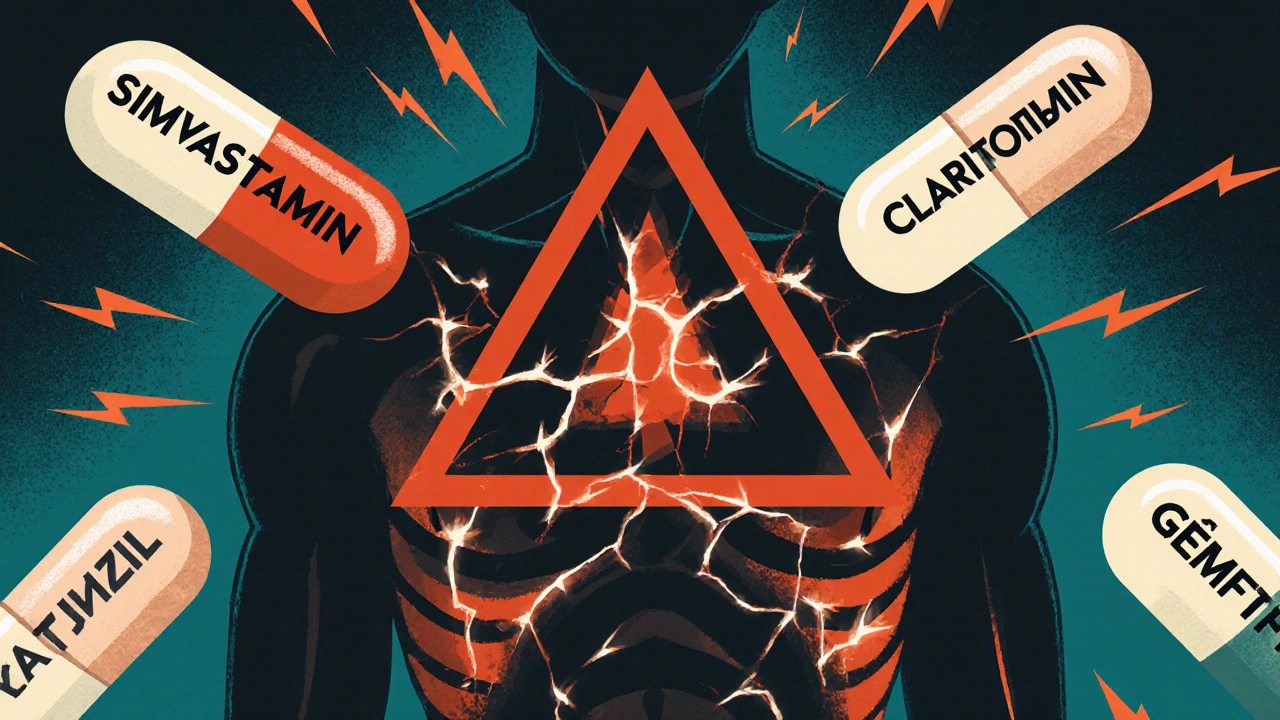Drug Interactions with Statins: What You Need to Know
When you take a statin, a class of cholesterol-lowering drugs used to reduce heart attack and stroke risk. Also known as HMG-CoA reductase inhibitors, they work by blocking a key enzyme in your liver that makes cholesterol. But statins don’t work in isolation. Many common medications, supplements, and even foods can change how they behave in your body—sometimes dangerously.
One of the biggest concerns is atorvastatin, a widely prescribed statin that’s more likely to interact with other drugs than some others. It’s broken down by the same liver enzyme (CYP3A4) that processes antibiotics like clarithromycin, antifungals like ketoconazole, and even grapefruit juice. When these are taken together, your body can’t clear the statin fast enough, leading to higher levels in your blood. That raises your risk of muscle damage, a serious condition called rhabdomyolysis. You might not feel it at first—just unexplained muscle pain or weakness—but it can lead to kidney failure if ignored.
Other statins like rosuvastatin and pravastatin are less affected by these interactions, but they’re not risk-free. liver function, how well your liver processes and clears medications matters a lot here. If you’re on multiple prescriptions, especially for diabetes, high blood pressure, or depression, your doctor should check your liver enzymes regularly. Some antidepressants like fluoxetine and sertraline, and even the common heartburn drug ranitidine, can interfere. Even over-the-counter supplements like red yeast rice—which naturally contains a statin-like compound—can stack up and cause trouble.
You might think if a drug is natural or sold without a prescription, it’s safe. But that’s not true. St. John’s wort, for example, speeds up how fast your body breaks down statins, making them less effective. And if you’re taking a blood thinner like warfarin, a statin can boost its effect, raising your risk of bleeding. The bottom line? Don’t assume your pharmacist or doctor knows every pill you’re taking. Keep a list—meds, supplements, even herbal teas—and bring it to every appointment.
There’s no one-size-fits-all answer. What’s risky for one person might be fine for another, depending on age, kidney health, and other conditions. That’s why the posts below cover real cases—like how atorvastatin affects kidney function, how certain antibiotics and antifungals spike statin levels, and what to do if you start feeling unusually tired or sore after starting a new med. These aren’t theoretical warnings. They’re stories from people who lived through these interactions—and learned the hard way.
Statin Interactions That Increase Myopathy Risk: What You Need to Know
Statins prevent heart disease, but certain drug interactions can trigger dangerous muscle damage. Learn which medications raise myopathy risk, how to spot early signs, and safer statin alternatives.
Read more
